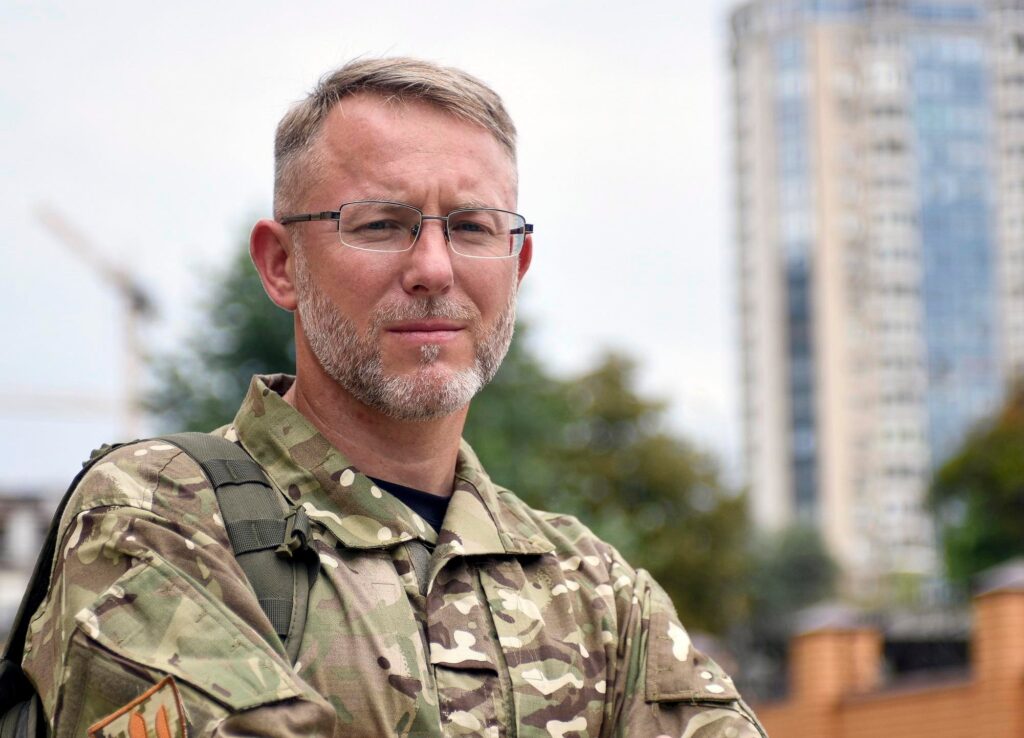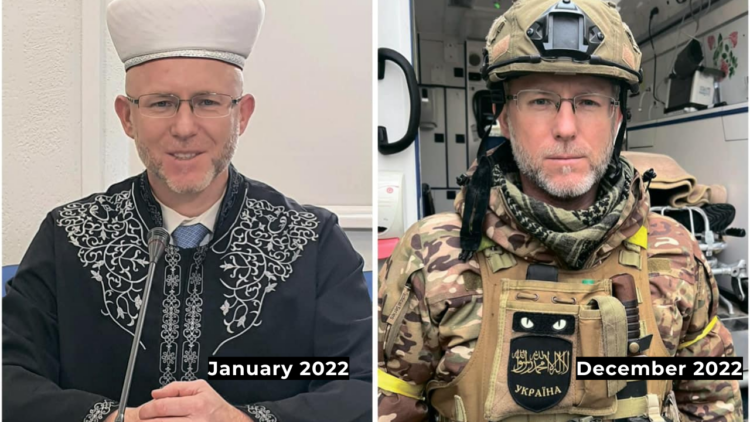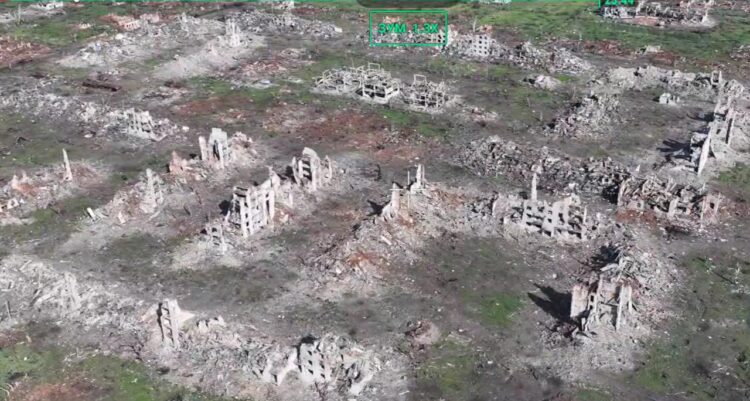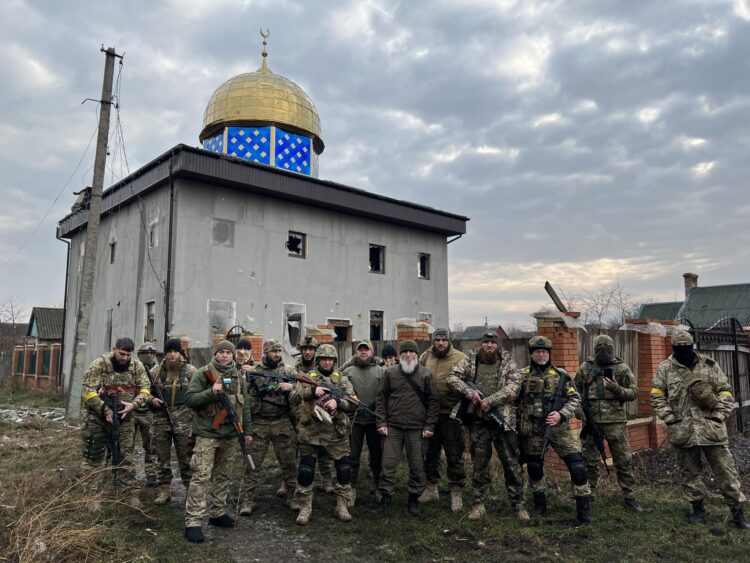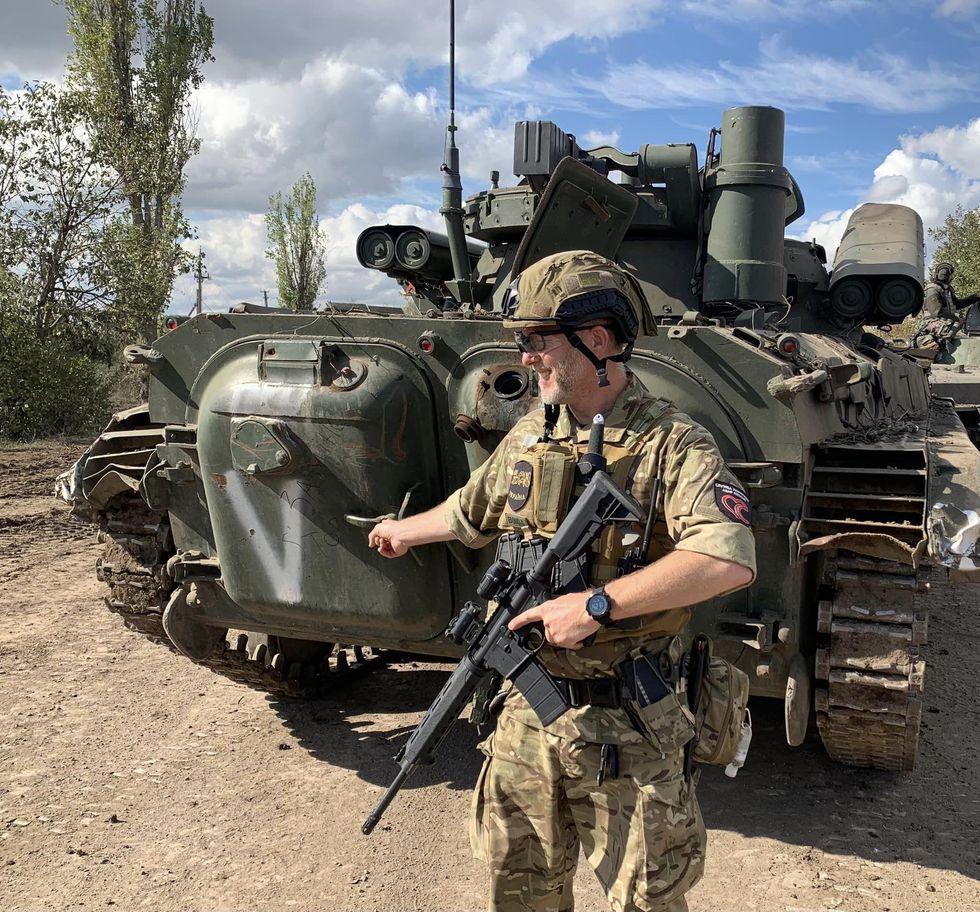“Bakhmut wasn’t the darkest”: Ukrainian medic exposes Russia’s deadlier strategy from the war’s new hell

The cities of Donbas have turned into fortresses—battered, besieged, others reduced to ash and rubble under Russia’s grinding advance that devours territory inch by inch, house by house. Yet Ukraine’s Armed Forces fight and hold what remains. Among those on the line is Mykhailo “Malina” Malinovskyi, a 45-year-old combat medic from Zhytomyr who volunteered the moment Russia’s full-scale invasion began.
His reason was simple: stop the enemy before they reach home.
During brief pauses in the fighting, Malinovskyi records his thoughts in a war diary. What emerges is a raw account of survival at the zero line, where death hovers one drone strike away.
“I thought Bakhmut was the darkest. I was wrong.”
Here I am — 45 years old and working as a combat medic. Who’d have imagined it? But life keeps teaching, and I keep learning.
Bakhmut, Chasiv Yar, Vovchansk. I thought those were the darkest days I’d face. I was wrong.
Now I’m back in the Donbas: Chasiv Yar again, Toretsk, Kostiantynivka. Each time I return, it feels like fate has raised the difficulty level. Only now, I’m not just responsible for myself. I’m responsible for every man next to me.

Not even in my worst nightmares did I expect to dig my comrades out of a collapsed dugout. To treat the wounded in the open while enemy drones carrying grenades swarm above. FPVs flying over us one by one, shredding the last of our cover. Flash. Explosion. Silence.
A fog invades the brain. Then nothing. For a second, everything vanishes. Voices sound distant, muffled, like they’re coming from deep underground. And then, realization — I’m still alive. I still have a little time to do something that matters.
In that moment, nothing else exists. Just me, the casualties, and the med training that kicks in.
I drag the wounded guy into the ruins of the burning blindage — a reinforced shelter where I can shield him, at least from sight. Survival instincts shut down. Emotions go dark. You work on autopilot. You do what you were taught.
One chance in a hundred
And when you survive ten attacks, a thought creeps in — you can’t die. Not yet. God has more plans for you. You grow more confident, and that confidence spreads to those around you. You grow hard, tough-skinned. But when the job’s done, that hardness starts to scare you.
War has changed. Two years ago, in Bakhmut, we had better odds. Here, it’s one in a hundred. One chance — and you have to choose the right moment to take it.
After weeks underground, your legs stop working. They’re stiff, numb. Permanent soreness. But now, you have to move. Walk. Run. Drag. Hide. Then run again. You hesitate at the mouth of the shelter. The sky hums with drones. You wait for the next wave, but you don’t hear the FPVs yet. So, you venture out. First steps, heavy with doubt.
Out now. Emotions vanish again. All you see is the distant goal — you gotta get the group 250 meters to the next cover. You move carefully, watching every step for mines, live drones, and dropped explosives. Your head spins. Ears scan the air like radars. You calculate as your eyes scan the gray sky: the seconds before impact, drone trajectory, distance.
Vision blurs. But you keep your eyes fixed on that one patch of cover up ahead. Exhausted, you crawl into the hole. You can’t breathe properly. Each breath scrapes your throat raw, followed by desperate gasps for air. Shortness of breath keeps your lungs half-empty.
“Relief comes, but only briefly — evacuations are still ahead”
You lie there, body tensed, ears ringing, sky buzzing. Something tells you — now. “Move!” you scream.
Your body nearly empty, you force yourself across scorched ground to reach the last bit of cover before the evac point. Your body threatens to collapse. You drop, gasping. Then, a car horn. The vehicle’s here to take the wounded. You have one minute.
You push yourself once more. You’re on the edge of blacking out, watching from the sidelines through blurry eyes. You override the exhaustion. Just for a moment.
Everyone’s loaded in. You slump over, almost unconscious. But there’s one thought keeping you conscious — you made it. You breathe out, relief washing over the fear of what tomorrow might bring.

“What if you can’t handle it one more time?”
Because this isn’t a one-time test. Tomorrow, it starts again. And you’re afraid — what if you can’t handle it one more time?
You don’t really sleep. You drop off in short bursts. You live in a constant state of tension. Day after day. Week after week. Month after month.
Back on the zero line — the front-line combat position — you’re slowly rotting away. But you’re grateful for a 1.5-liter bottle of water dropped by drone — no vehicle can reach you here. You haven’t had more than a few sips in days. You save some water — for coffee. Just a mouthful. You can’t waste it. But you brew it anyway. Sip it slowly. You light a cigarette. Inhale. Exhale. Quiet.
Because maybe this-this tiny, bitter moment — is the most peace you’ll get in the next few months.
And in that moment, that unbelievable moment, you feel human again. You’re here, you’re standing on your land. You’re exactly where you’re meant to be.

Read also
-
“They trample corpses”: Ukraine’s Muslim leader-turned-medic exposes what Russians really fight for
-
“They put grenades in washing machines.” Hero Brit killed while saving Ukrainian families from Russian “surprises” left behind infant daughter
-
“Bucha Witches” take down the drones that once hunted them
